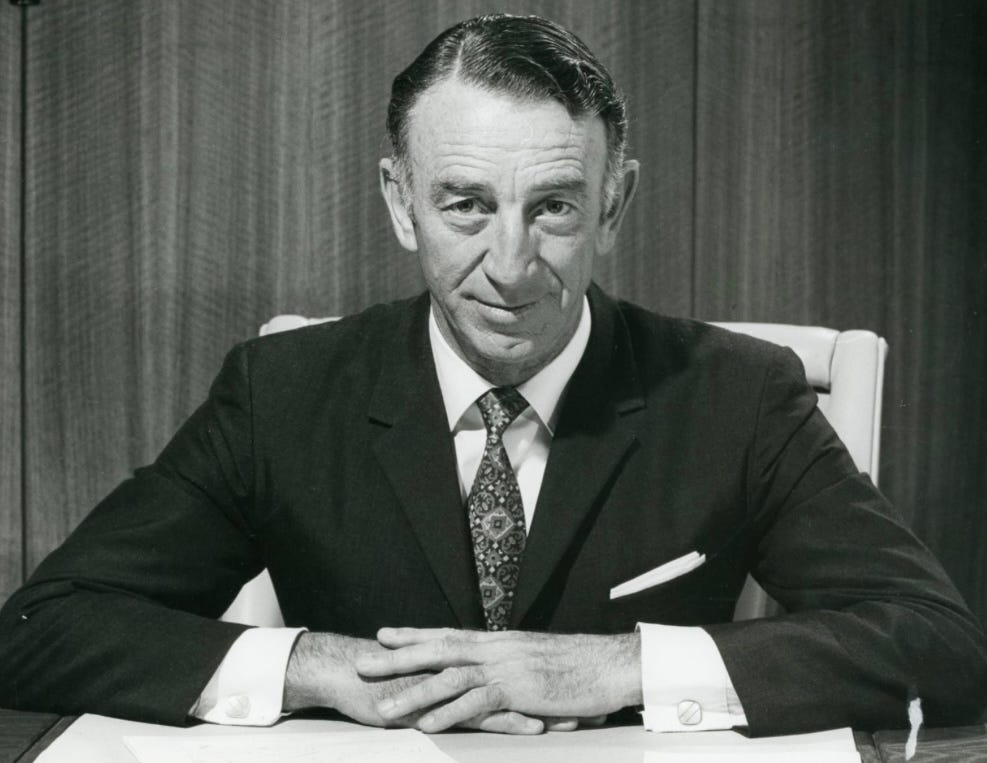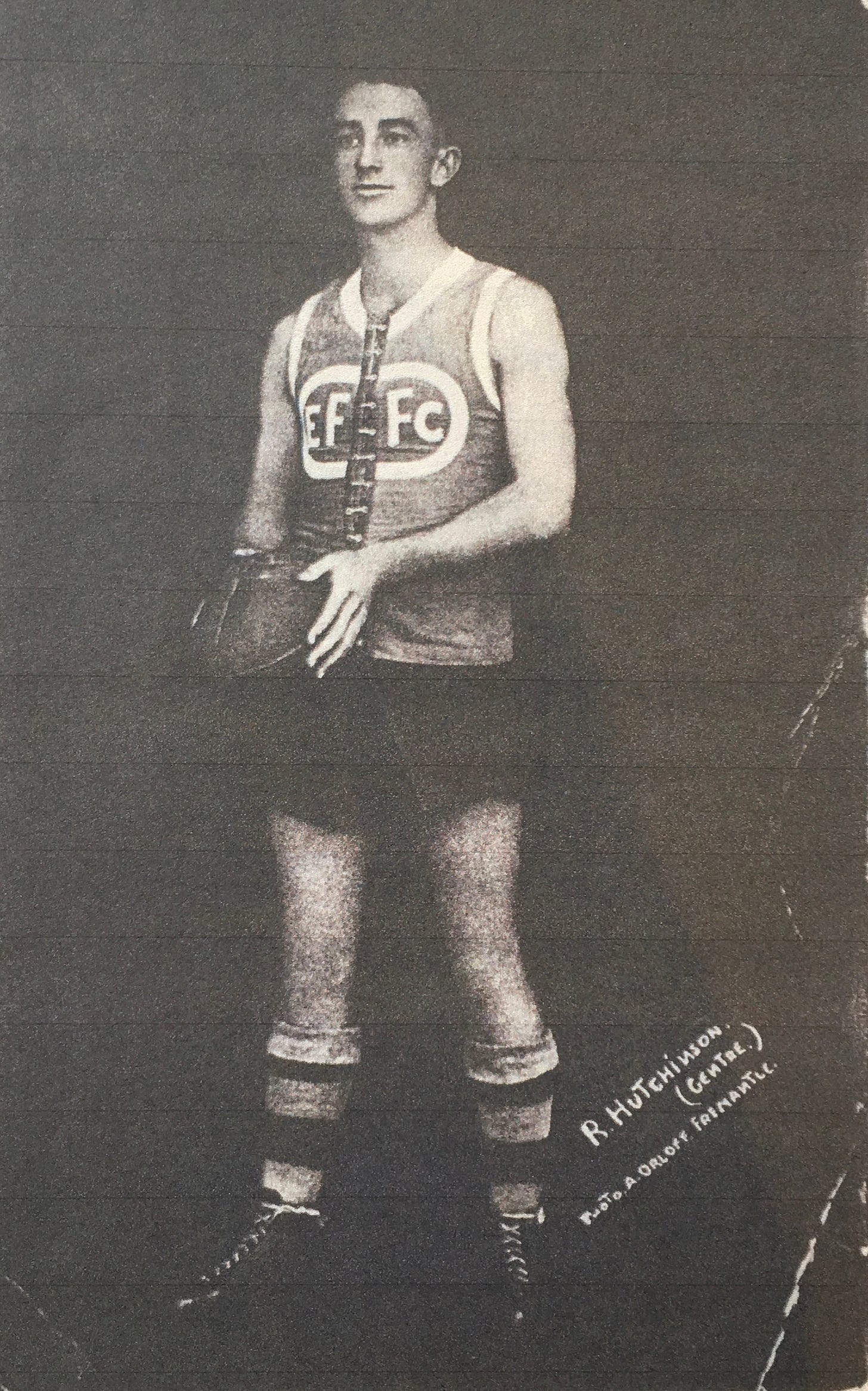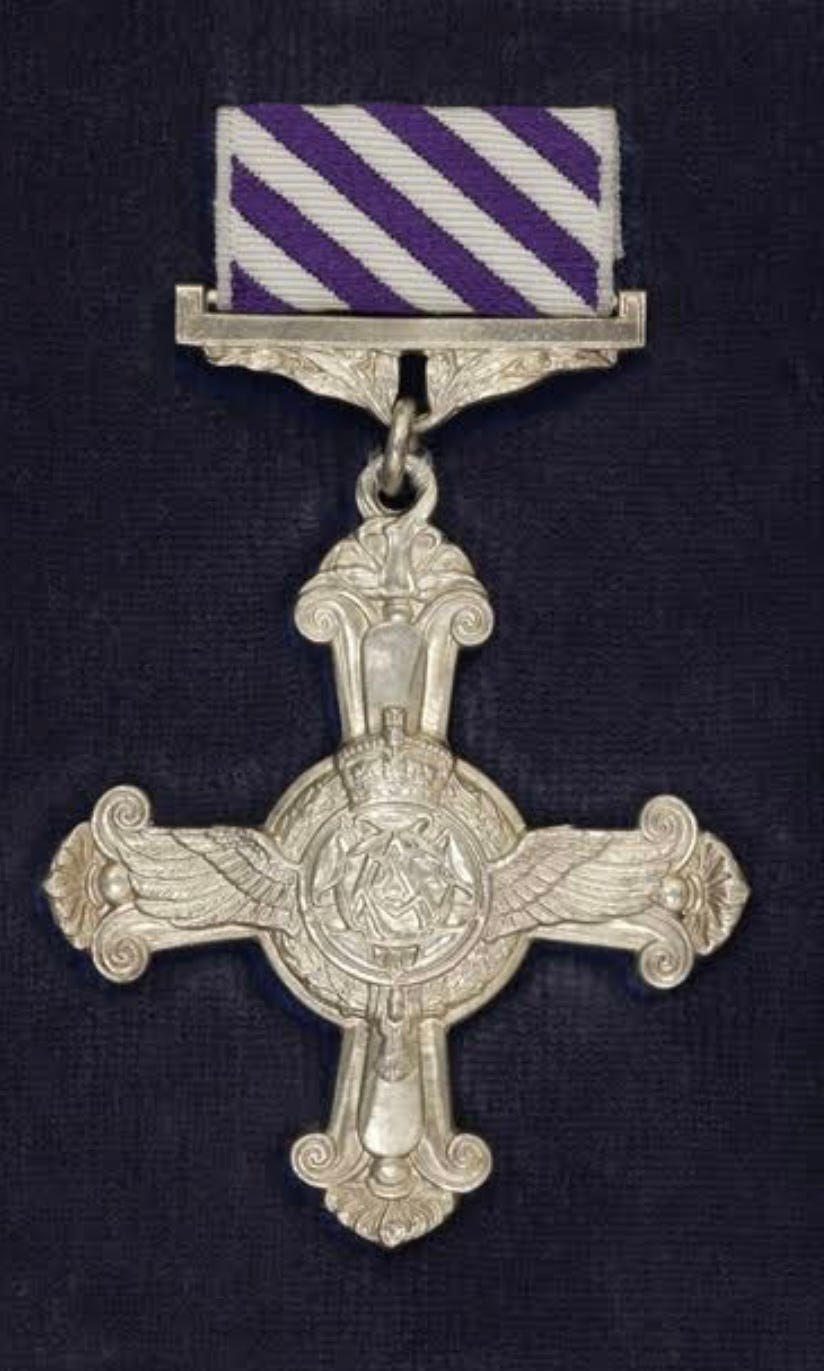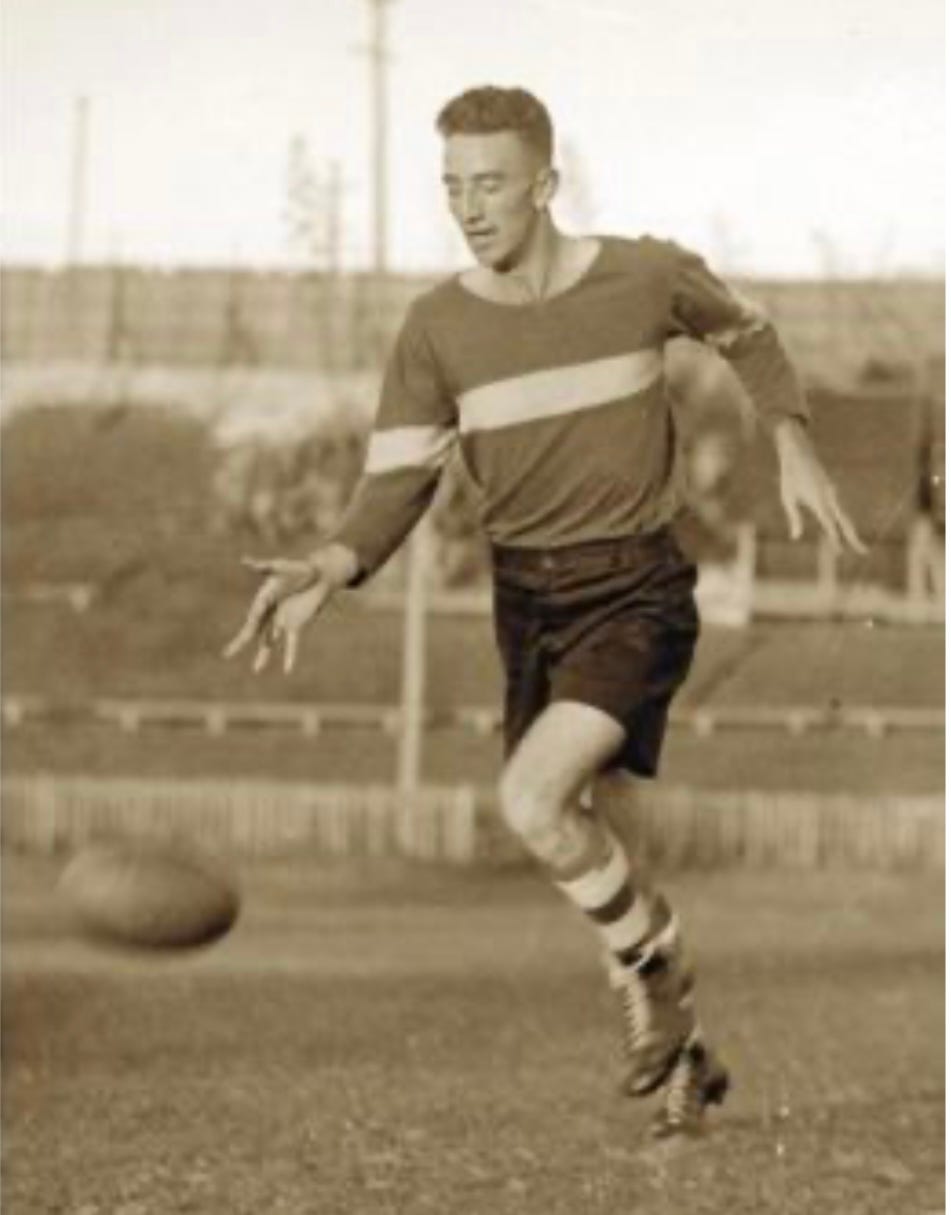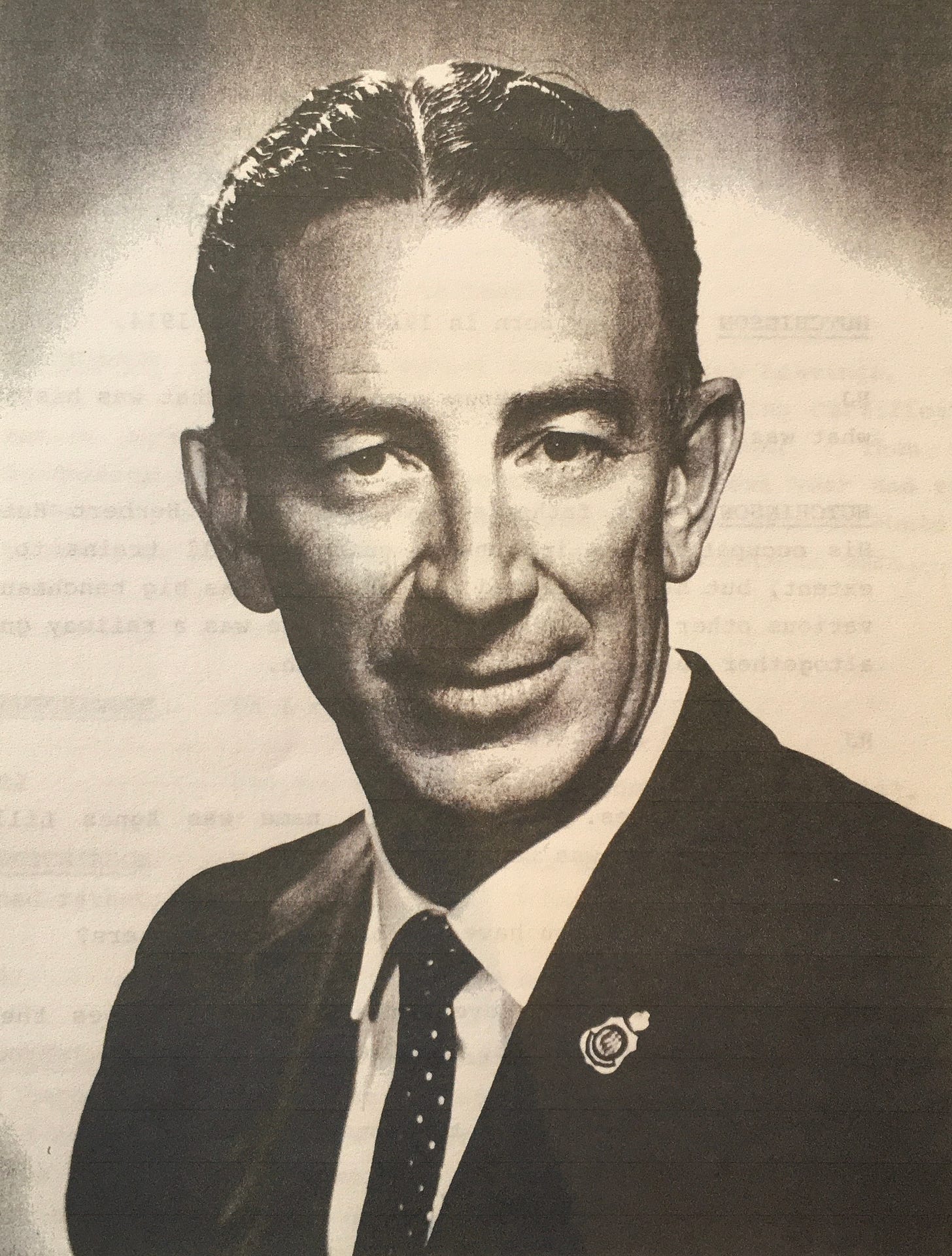Sir Ross Hutchinson, 10 September 1914 – 18 December 1999
ANZAC Tribute
By Rick Vredenbregt
“It was a period of my life (WWII) that was almost unbelievable in many ways; to go through a full tour and to experience the things that we did, seem scarcely believable at this distance (the horrors of war). At seeing cities burning and blowing up, and of experiencing the dangers of people shooting at you and of injuring your aircraft and so on. Then to think there were hundreds and hundreds of planes all around you in a wave, where you could collide, or could have bombs dropped on you. You had to shift out of the way of planes overhead with bomb doors open and all ready to drop. Those sorts of experiences which are just quickly recited to you, leave an indelible impression.” Sir Ross Hutchinson. (Jamieson, R. November 1986. Oral History Programme, p.13.)
Above - Sir Ross Hutchinson. Source: Wesley.wa.edu.au
Remembering Sir Ross Hutchinson, a name immortalised in the history of this state for his service and achievements in football, politics and most importantly, the military. We salute the likes of Hutchinson along with thousands of servicemen and women, past and present, for their selfless and courageous sacrifice, in their pursuit of freedom and democracy on this sacred day of remembrance. LEST WE FORGET.
Born into humble beginnings in a small town near Collie called Worsley in 1914, to father Albert, a mill train running guard and big benchman, and mother Agnes, Hutchinson quickly rose to prominence in football as a dominant junior after he and three younger sisters moved with their parents to Honnibal street Deanmill. Reflecting several decades later, Hutchinson said; “I was one of the best footballers of my age there”.
Hutchinson was sent to boarding school at Wesley College to complete his education and after what he described as a “horrifying beginning”, he eventually settled in, becausefootball was his self-proclaimed “saviour”. Later, following a short return to Deanmill after completing his schooling, Hutchinson played for Jardee (Jardenup), and it wasn’t long before two WAFL clubs, Swan Districts and East Fremantle, came knocking. After choosing East Fremantle, only because they had won so many premierships compared to the five-year-old Swans club whose cabinet was empty, so began a wonderful career on and off the field, setting records along the way in coaching that haven’t been bettered.
Hutchinson, a teacher by trade, went on to play 130 league games (EF 94, SF 18, WP 14), winning fairest and best awards at East Fremantle in his first two seasons (1935/36), and at the age of just 23, was appointed captain-coach of East Fremantle, leading them to the 1937 premiership. Also captain-coaching Western Australia against Victoria in 1939, Hutchinson, later sought a clearance to play at West Perth. However, his request was denied by the blue and whites and although sitting out as a player for two seasons, Hutchinson was still able to coach the Cardinals and in 1941 took them to their first flag since 1935. Harry Potter for the Daily News wrote, “Great credit is due to their coach, Ross Hutchinson”. (Potter, H. 11 October 1941. West Perth Brilliantly Win Premiership. Daily News, p. 19. Trove)
Above - Sir Ross Hutchinson during his playing career at East Fremantle. Source: The Western Australian Parliament, Parliamentary History Project and Battye Library Oral History Programme.
During the ensuing four years between the age of 27 and 31, Hutchinson was on hiatus from football serving as a flight Lieutenant bomber pilot in squadron 578 during WWII. He was bestowed the Distinguished Flying Cross award after he had “cooly and skilfully” regained control of his aircraft following it being hit by anti-aircraft fire whilst on an oil refinery bombing mission over Sterkrade, Germany in 1944. Hutchinson and flying officer Harold Dalton still managed to carry out the operation successfully after “attacking the target with great precision”, before Hutchinson returned the “badly damaged bomber” safely back to base “despite the loss of engine power”. In his wide-ranging oral history interview with Rhonda Jamieson conducted in 1986, 41 years after the war ended, Hutchinson remarked; “It was a period of my life that was almost unbelievable in many ways; to go through a full tour and to experience the things that we did, seem scarcely believable at this distance”.
Above - Citation of Sir Ross Hutchinson’s act. Source: National Archives of Australia.
Above - Distinguished Flying Cross award. Source: Australian War Memorial awm.gov.au
Following his return to football in 1946, Hutchinson took up from where he left off, coaching West Perth, this time from on-field, taking them to the Grand Final where they were beaten by his old club East Fremantle. In 1947, Hutchinson was on the move once again heading back to Fremantle, but this time with South Fremantle, and he had immediate success captain-coaching them to the 1947 flag. After his retirement as a player, Hutchinson took South back-to-back winning again in 1948. In 1949, the Southerners finished third, the only season Hutchinson had failed in coaching a side to the grand final, and he called quits on his football career.
Hutchinson left football with a coaching record of 173 games for four flags, to go alongside his playing achievements, and was the first person to coach three different WAFL teams to premierships, later of course to be joined in the exclusive club of two by John Todd, who achieved the ultimate success with East Fremantle in 1974, Swan Districts in 1982/83/84/90 and South Fremantle in 1997. Remarkably, both Hutchinson and Todd resided on Honnibal street in Deanmill (at different periods), along with another great of the game, South Fremantle’s multiple premiership winning full-back and state regular, Ray Richards (a neighbour of Todd), to make it arguably the most successful and famous footballing street in Australia. In fact, at one stage, Hutchinson had called in on a young Richards in Deanmill asking him if he would like to try out at the Port. All three are members of the WA Football Hall of Fame with Todd an official legend. Besides those champions, Deanmill has been the product of several other stars of the WAFL/AFL including Jack Murray (Swan Districts), Gary Bygraves, Ray Giblett, Heath East (East Perth), Paul Peos (East Perth, West Coast, Brisbane), Matt Priddis (Subiaco, West Coast) amongst a few others.
Above - Sir Ross Hutchinson. Source: WA Football Hall of Fame website.
Although hailing from humble working-class beginnings, Hutchinson apparently used to quote Shakespeare during his coaching sermons, humorously confusing the likes of future WA Football Hall of Fame legend, the Kalgoorlie raised Steve Marsh who “spent some of his time shoeless and parentless” (Barker, A. (2004). Behind The Play, A History of Football in Western Australia. p. 92.)
Despite his illustrious careers in football, teaching and the military being finished, it wasn’t the end of Hutchinson’s impactful service to the public. Anthony Barker, in ‘Behind the Play’, quoted Marsh as once saying that he believed Hutchinson was “as good a coach as any” but added that he never got involved in the politics of the game, something Barker found “ironic” considering Hutchinson’s future 27 years serving in Western Australia’s Parliament!
Elected comfortably to the seat of Cottesloe in 1950 representing the Liberal party, Hutchinson occupied several ministerial positions during time in Liberal governments, including health, fisheries and fauna, plus works and water supplies. Finally, upon the election of the Charles Court lead government in 1974, Hutchinson accepted the position of Speaker for the Legislative Assembly until his retirement in 1977.
Above - Sir Ross Hutchinson when Speaker of the Legislative Assembly. Source: Western Australian Parliament Members biographical register.
Hutchinson was knighted the same year for his services to the state and goes down as a true great in Western Australian history following a remarkable list of achievements and service in over four decades of football, military and politics between 1935 and 1977.
LEST WE FORGET.
Above - Sir Ross Hutchinson circa late 1950’s. Source: Western Australian Parliament, Parliamentary History Project and Battye Library Oral History Programme.
Other reference sources: waflfootyfacts.net, The Footballers (G. Christian, J. Lee and R. Messenger), It’s a Grand Old Flag (B.A. Atkinson). Parliament of Western Australia, Members Biographical Register.




